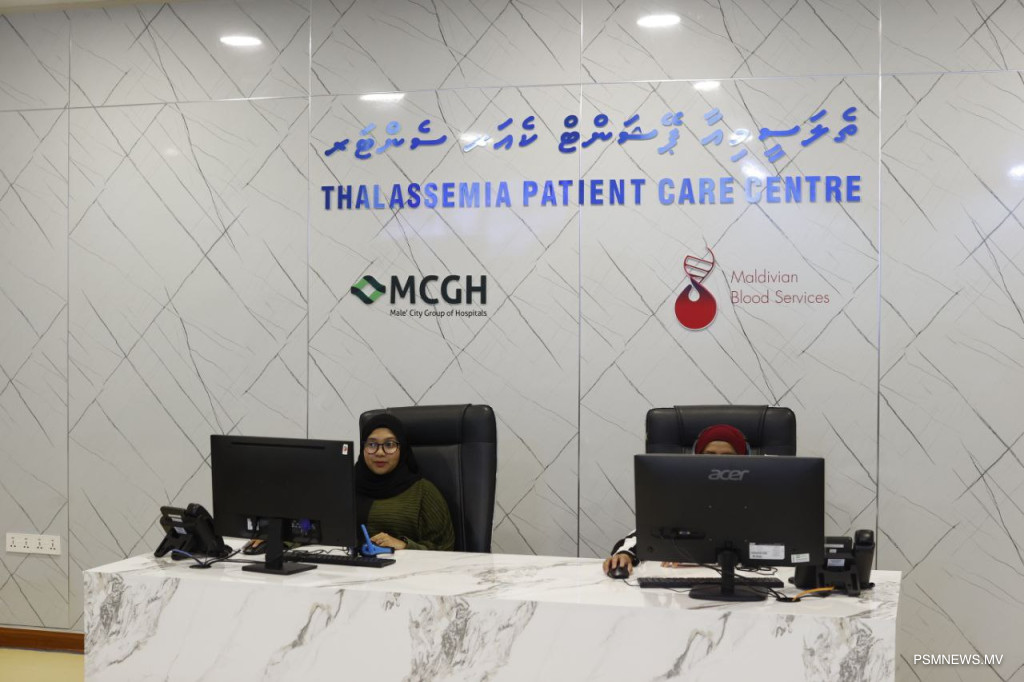
A Thalassaemia Patient Care Centre has been inaugurated in Hulhumale’ to provide specialised support to patients living with the condition.
The facility, located in the Orange Hiyaa Building in Hulhumale’ where the Maldivian Blood Services is based, aims to make assistance more accessible to patients, particularly those living in the atolls.
Speaking to the media at the opening, Male’ City Group of Hospitals’ Chief Executive Officer Ibrahim Abdul Razzaq Haleem said that in the past, there were significant difficulties in providing specialised services to thalassaemia patients living in the atolls. However, the centre will enable easier access to care and allow regular monitoring of patients’ conditions, he said.
"If patients face difficulties in consulting a doctor or need specialist advice, the centre will provide services in collaboration with the Atoll Hospital in the area,” he explained.
Senior Specialist Registrar of the Maldivian Blood Services, Dr Ahmed Umar said the centre will proactively contact patients in the atolls to identify those who need special assistance, and ensure support is provided. He said the purpose of the centre is to monitor the patients with thalassaemia as closely as possible and provide services swiftly.
The Thalassaemia Patient Care Centre was established with the assistance of the Belarus Maldives Cultural Centre. The centre will contact every child and person with thalassaemia every three months.
CEO Razzaq also announced that the Male’ City Group of Hospitals is preparing to introduce genetic testing, including DNA testing services through the Maldivian Blood Services. He said the budget has been allocated for the procurement of equipment and staff to provide the service. DNA testing is a reliable test for prenatal testing, confirming thalassaemia carrier status, prenatal diagnosing and identifying anaemia, as well as identifying other rare blood disorders, he added.
At present, DNA testing is only available from the Society of Health Education (SHE) at a cost of around USD 65. The high cost has raised concern among patients and families.
Since the registration of thalassaemia patients began in 1992, 968 individuals have been registered, with 670 currently receiving services for the disease.
